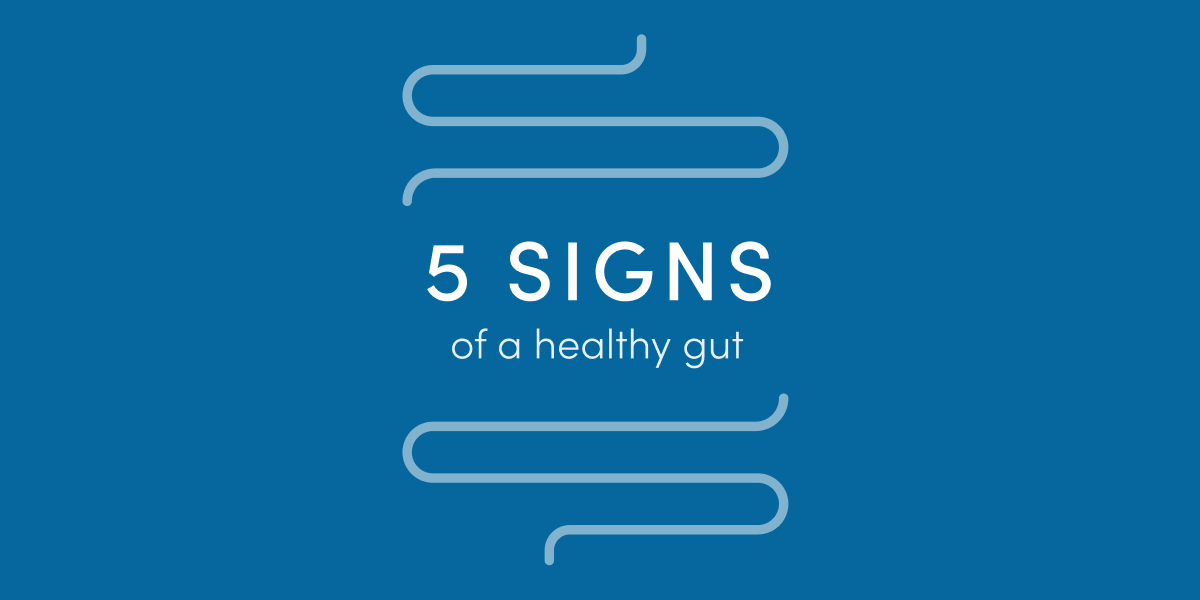May 20, 2021
•

Many different factors can affect our gut health — from the foods we eat and stress levels, to sleep and antibiotic use. As our research has shown, having a healthy gut that houses plenty of “good” gut microbes is important for overall health.
But how do you know whether your gut is healthy?
To help you get to know your gut and what’s normal for you, we’ve put together a handy gut health check.
There’s no hard and fast rule for how often you ‘should’ poop. Instead, look out for a pattern of ‘three and three’: pooping between three times a day and three times a week. Anything within that range is considered healthy.
You should also be pooping during the day. If you find yourself getting up in the middle of the night to poop that could be a sign that something’s not quite right and should be checked out by your doctor.
Another important indicator of gut health is how long it takes for a meal to be digested and for the food, you eat to travel through your gut - this is called gut transit time.
A healthy gut transit time isn’t too short or too long. Our research suggests that transit time varies widely between people, with a typical time of around 28 hours.
The color, shape, and consistency of your poops can give you important clues about your gut health.
A healthy gut makes predominantly brown poop that should fall somewhere in between medium to dark brown.
If your poop is a different color, such as green, black, red, or yellow (and you haven’t eaten a highly colored food like beetroot) then your gut might be misbehaving and you should get it checked out.
Signs of a healthy gut include poop that:
Signs of an unhealthy gut include poop that:
Being able to poop comfortably is a sign of a healthy gut. You should be able to complete your poop without pain or feeling like you’re having to push hard to get it out.
If you do find yourself having some pain or discomfort when pooping, or straining too much, that could be a sign of constipation, food intolerances, irritable bowel syndrome, or other medical problems that need checking out.
Gas is a natural and happy byproduct of the trillions of gut bacteria munching on the food we eat. Healthy gut activity gets us farting between 10-20 times a day.
Remember - it’s good to fart. Try not to hold back the gas as holding in farts can have negative effects.
Trapped gas can also make you feel bloated. While it’s normal to feel a little bloated and gassy after a big meal, some people do experience this more than others, particularly after eating certain foods. Check out our tips for help with feeling bloated and gassy.
If you’re experiencing persistent bloating or pains that cannot be explained by a change in your diet or circumstances, such as increased stress, you should speak to your doctor.
Finding the foods that work best for your unique body and your community of gut bacteria starts with understanding which bugs are living in your gut right now, and which foods will help them thrive.
Through our research, we have identified a panel of 15 ‘good’ and 15 ‘bad’ types of microbes associated with ‘good’ and ‘bad’ markers of health, along with their favorite foods. Our gut microbiome test is the most advanced available on the market, using a deep level of sequencing to identify the microbes in your gut.
We’ll tell you which bugs you’re hosting, together with an in-depth understanding of how your body responds to foods so you can take back control of your health and weight.
All of these insights feed into your personalized nutrition advice, which includes recommendations to support better gut and metabolic health.
Want to find out how you can eat to support your gut and unique biology? Start your journey with ZOE today.